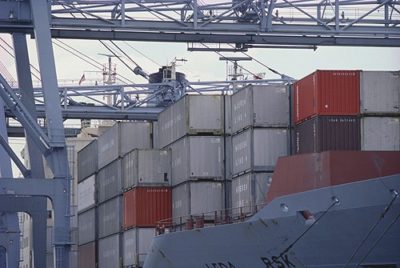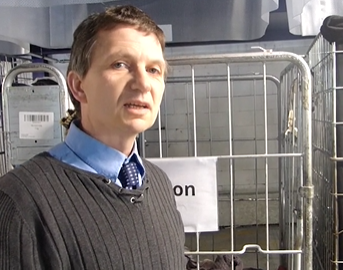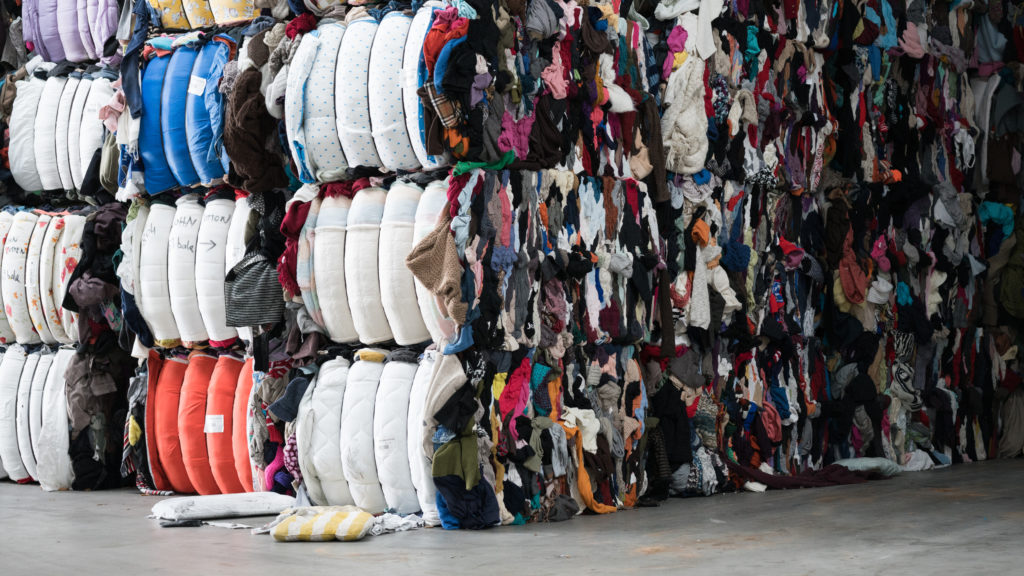While a debate between textile recyclers and charity shops on prices for shop collections has always been in place, this has been exacerbated recently due to reported difficulties in the export market.

The charity shop sector is anticipating “really strong trade” from 12 April, according to the Charity Retail Association (CRA), as there will be pent up demand both in terms of trading and donations.
While small numbers have been operating click and collect services during lockdown, the vast majority have been closed, and most shops will be re-opening on 12 April unless the date for non-essential retail opening changes.
If there is an influx of clothing, charity shops could have large tonnages of clothes they will need to either sell to a textile recycler or dispose of elsewhere. The value of this material is currently under much discussion.
Prices
A pricing report from the CRA this week suggests that in 2020 prices fell from £370 a tonne in January 2020 to around £320 in December, but picked up from around £300 in the summer.

The report goes on to say that 70% of respondents expect the prices to “stay the same” in the first three months of 2021.
Robin Osterley, chief executive of the Charity Retail Association, says that there “doesn’t seem to be a real reason why prices should fall from December”.
Mr Osterley said: “For collection prices, it’s a slight crystal ball exercise. During the course of the last year the average the average price has fallen to around 32 [pence per kilo].
“However when things do reopen, there doesn’t seem to us to be a real reason why it should go down from where it was in December. We know there have been issues with shipping and it’s sometimes difficult to get material overseas because of a shortage of shipping availability but that problem doesn’t feel to me like it’s as great as other issues we have had in the past, particularly last year.”
Recyclers
However, some textile recyclers have said trading conditions are limiting what they can afford to pay, with some saying the price should be in a range up to £300 “at the very most” for shop collections.
“When things do reopen, there doesn’t seem to us to be a real reason why prices should go down from where they were in December”
Issues in the export market include increased shipping container costs, import duties and currency issues which are impacting margins.
Exports
Speaking with letsrecycle.com in the video seen below, Tosh Vyas, founder of Bedford-based textile recycler Fortune Eximports outlined the main issues the export market is facing.
He says despite the markets in Kenya being reopened last year (see letsrecycle.com story), imports of clothes in the country are still being hit with a high level of duties.
Mr Vyas added that in other markets such as Eastern Europe, goods are being hit with extra duties because upon inspection, clothes are not found to have “originated” in the UK as they were manufactured elsewhere. This can often add around 5% to shipping costs.
Price
All this, according to Mr Vyas, means textile recyclers are unable to pay for more.
“It will be difficult. If you look at all the factors, minimum wage is going up, freight costs are rising too. Unless or until a senior minister gets involved this will not be solved.
” I really doubt there will be a huge number of donations and collections”
“To Poland last year we spent around €1,100 to export, now it’s doubled, Ghana has risen by £400, Pakistan has risen by almost £700-£800 per container. Any increase in freight costs eventually falls onto suppliers like us.”
Looking at tonnage levels, he added: “During the first lockdown people cleared their wardrobes, in the second they cleared their lofts, and at the moment textile banks are dry.
“So I really doubt there will be a huge number of donations and collections, but yes they will be more busy, but we won’t be functioning as normal for a long time”.
Shops
Giving an overview of the situation, Alan Wheeler, director of the Textile Recycling Association, said the clothing export market has suffered “significantly”, and argued that without recyclers the goods which used clothing shops collect but are not able to sell in their shops “would simply be sent for disposal.”
Mr Wheeler said: “Since the Covid outbreak started the used clothing export market, which is the economic driver for our sector, has suffered significantly. After the initial shutdown in March 2020 there was a slow recovery for the Charity Retail Sector with the supply of clothing, but this recovery was still only operating at 70-80% of what we would normally expect to see.”

Mr Wheeler added: “With the looming reopening of the sectors within the month, we are relatively optimistic that there should be a smoother recommencement of the collections from the Charity Retail Sector will be much quicker than last year.
“However there maybe an issue with the volume and quality as the UK’s buying habits have changed due to lockdown and not going out, so this may affect what the sector can collect and then add the shipping/Brexit issue which still stands, and the usual issues the textiles recycling industry faces, it is not likely to return to normal let alone see any growth for some time.”










Subscribe for free